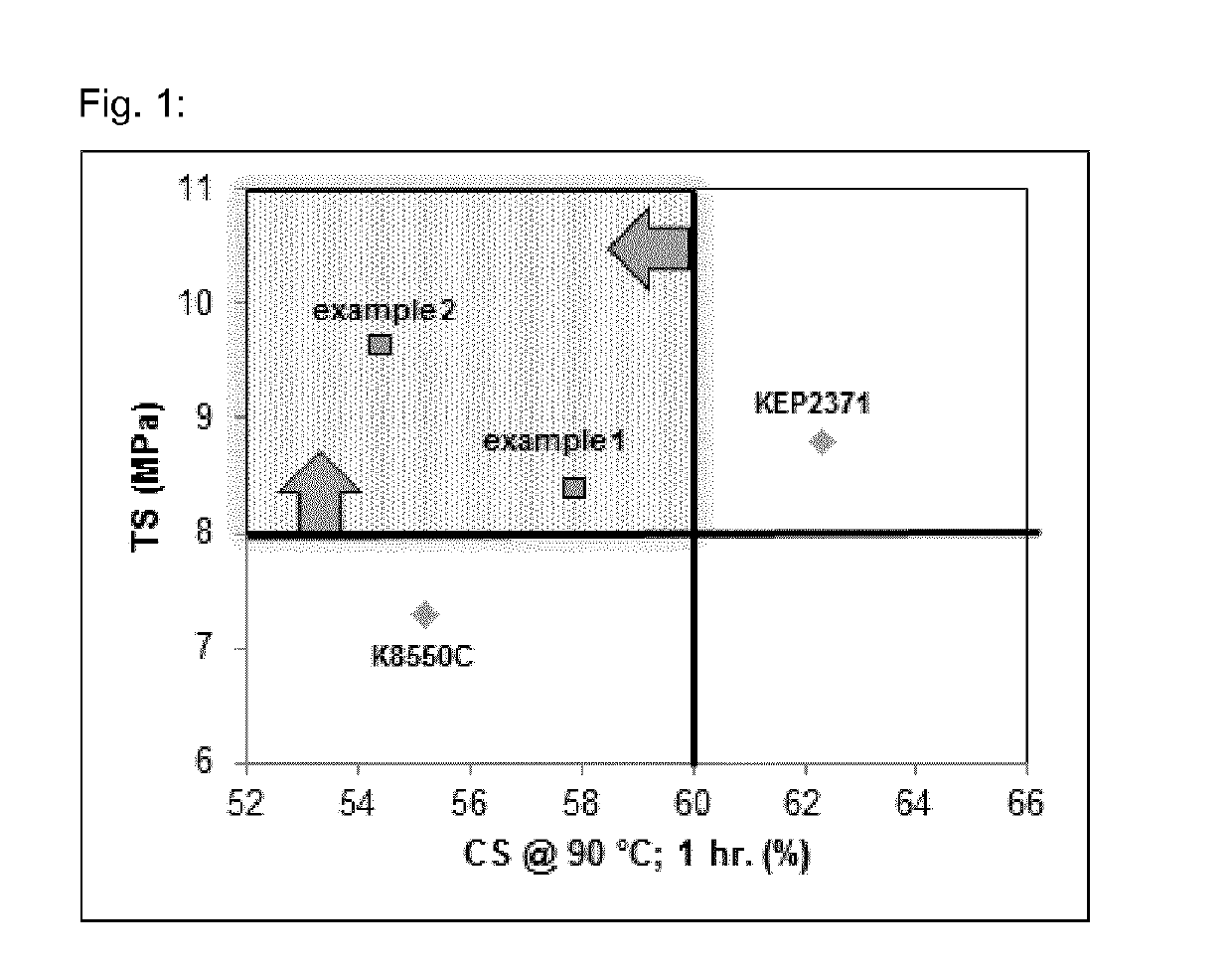Rubber composition
a technology of rubber and composition, applied in the field of epdm copolymers with improved elasticity properties, can solve the problems of limited to the total loading of rubber compounds, inability to meet the requirements of a single molecule,
- Summary
- Abstract
- Description
- Claims
- Application Information
AI Technical Summary
Benefits of technology
Problems solved by technology
Method used
Image
Examples
Embodiment Construction
Preparation of EPDM Copolymers Examples 1 and 2.
[0071]The polymerization was carried out in a solution polymerization reactor with a volume of 3 L. The hexanes, ethylene, propylene, dienes and hydrogen feed streams were purified by contacting with various absorption media to remove catalyst-killing impurities, such as water, oxygen and polar compounds, as is known to those skilled in the art. The process is continuous in all feed streams. Pre-mixed hexanes, propylene, ethylene, dienes, hydrogen, tri-octyl aluminium and butylated hydroxytoluene were pre-cooled before being fed to the reactor. A solution, containing the catalyst compound 19 as disclosed in WO2005 / 090418 and triphenylcarbenium tetrakisperfluorophenylborate, was fed separately to the reactor. The hydrogen content was adjusted to achieve the desired polymer Mooney as given in Table 2. The polymer solution was continuously removed through a discharge line, where a solution of Irganox® 1076 in iso-propanol was added, optio...
PUM
| Property | Measurement | Unit |
|---|---|---|
| Temperature | aaaaa | aaaaa |
| Percent by mass | aaaaa | aaaaa |
| Molar mass | aaaaa | aaaaa |
Abstract
Description
Claims
Application Information
 Login to View More
Login to View More - R&D
- Intellectual Property
- Life Sciences
- Materials
- Tech Scout
- Unparalleled Data Quality
- Higher Quality Content
- 60% Fewer Hallucinations
Browse by: Latest US Patents, China's latest patents, Technical Efficacy Thesaurus, Application Domain, Technology Topic, Popular Technical Reports.
© 2025 PatSnap. All rights reserved.Legal|Privacy policy|Modern Slavery Act Transparency Statement|Sitemap|About US| Contact US: help@patsnap.com

